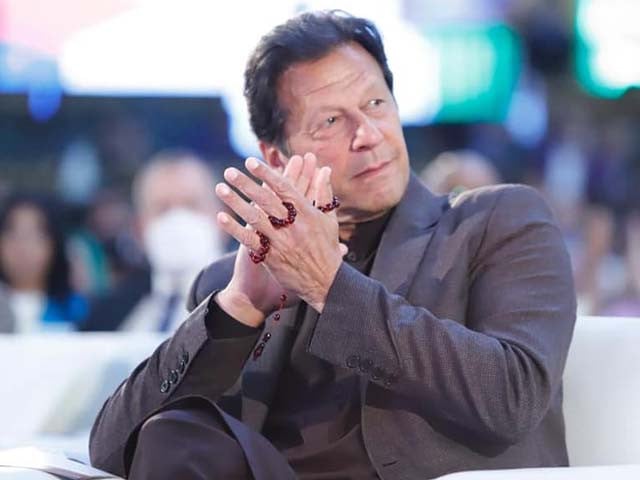
After decades of cold and minimal contact, known Cold War adversaries, Russia and Pakistan, are finally warming up and willing to write a fresh chapter in their bilateral relations.
Arriving in Moscow on the invitation of Russian President Vladimir Putin, Prime Minister Imran Khan is expected to discuss a wide array of topics, including Afghanistan. Analysts believe Premier Khan’s visit to the Russian capital marks the beginning of a new era in ties between the former foes – particularly after the abrupt withdrawal of US forces from Afghanistan last year.
“Bilateral relations have never been this good. Although there is a long road ahead, the progress that Russia and Pakistan have made in such a short amount of time is impressive,” said Andrew Korybko, a Moscow-based political analyst. “It is especially symbolic that these former Cold War-era rivals came together due to shared concerns about threats emerging from Afghanistan – considering that they once fought a proxy war there,” Korybko said via email.
Ties between Pakistan and Russia, he explained, have improved significantly since 2014 – after Moscow lifted its arms embargo on Islamabad in a bid to help improve its anti-terrorist capabilities. “The entrance of Islamic State Khorasan (IS-K) to Afghanistan was a game-changer that served to accelerate their already fast-moving rapprochement,” he added.
Korybko, who specialises in the relationship between the US strategy in Afro-Eurasia, China's Belt and Road Initiative noted that Islamabad's defence ties with Moscow have moved past the Soviet-era hostilities in recent years. “Russia and Pakistan have been carrying out annual joint anti-terrorist drills. This served to further increase trust between their armed forces and their permanent bureaucracies more broadly.”
During the Cold War – particularly after the Soviet invasion of Afghanistan, Islamabad aligned itself with Washington. That irked the leadership in Moscow. More recently, after the US invasion of Afghanistan in 2001, relations between Pakistan and Russia plunged again, as Islamabad was given Major Non-NATO ally status by Washington. According to experts, the recent shift in the relations between Pakistan and the US has pushed the country to seek better ties with Russia. The cooperation between the two sides entered a new phase shortly after US troops left Afghanistan in 2021.
Policy makers around the world, Korybko said, are fully aware that no serious player can achieve anything meaningful in Afghanistan without Pakistan’s support. “Claims to the contrary are nothing but information warfare intended to manipulate mass perceptions about that country. Decision makers, however, know that such a narrative has no basis in reality.”
Russia and Pakistan, the experts said, will continue to coordinate their diplomatic approaches to Afghanistan’s de facto Taliban-led government as well as solutions to that country’s impending humanitarian crisis. In Korybko view, Pakistan’s future outlook aligns much more closely with Russia and China than the US’. “For this reason, Pakistan is expected to further enhance its cooperation with those two, potentially even on a trilateral or broader basis, not to mention the already existing bilateral ones,” said the Moscow-based expert.
READ PM Imran's visit to Moscow will strengthen relations: Fawad
Historically, Russia has enjoyed closer ties with Pakistan’s arch-rival, India. When asked to comment on the impact of the new bonding between Islamabad and Moscow and its impact on the latter’s ties with New Delhi, Korybko said: “Russia doesn’t practice a zero-sum foreign policy, but a win-win one just like China. Its new relations with Pakistan are meant to restore balance to its South Asian strategy, especially in light of India unbalancing the region through its de facto pivot towards the US in order for those two to jointly “contain” China.”
“To be clear, Russia-Pakistan relations don’t threaten India and aren’t occurring at the expense of Russian-Indian ties, but some demagogic forces in New Delhi still claim otherwise,” he added.
India and the region
For the entire duration of the Cold War between Russia and the US, South Asia’s main rivals, India and Pakistan were seen on opposite sides of the fence. India remained closely aligned with the Soviet Union and Pakistan was seen as a close ally of the US. This has changed significantly, and the change has accelerated since the US left the region after nearly two decades in Afghanistan.
The fading US influence in the region and the subsequent rise of Russia and China has forced countries to choose sides once again. This time, India appears to be closer to the US, and Pakistan, for obvious reasons, appears closely aligned with China. Commenting on the new bond between Russia and Pakistan, Dr. Ashok Swain, Professor of Peace and Conflict Research at Sweden’s Uppsala University said: “The convergence of interests between Russia, Pakistan, and China will continue to bring them together.
There are a number of mutual interests, including Afghanistan where these countries will be seen working together and that's a challenge not just for the West but also for India.” Strengthening of Moscow-Islamabad ties, Dr. Swain explained, eliminates Pakistan’s foreign policy challenge. “With improved relations with Russia, which already has a strong bond with China, Pakistan no longer has to perform a diplomatic balancing act as it had to between Washington and Beijing.”
For India, which appears to be in the US sphere of influence, the Sweden-based expert said, the burgeoning Russia-Pakistan ties create a significant foreign policy challenge. “For decades, Russia has been India's primary support in the United Nations Security Council architecture. With improved ties with Islamabad, that power may not always support India during UN debates – particularly on Kashmir.” India’s unwavering support from Russia, Dr. Swain said, may not be guaranteed after the new bond with Pakistan. “India will have to seek the support of other powers and countries for its stance.”
READ Islamabad, Moscow in talks for maiden Putin visit
New Delhi, Dr Swain explained, still procures a significant portion of arms from Moscow. The growing alliance between Russia, China, and Pakistan, Uppsala University’s Dr. Swain said, will have an impact on arms sales to India. “China would not appreciate Russia for selling weapons to India and some other countries,” he added.
What to expect?
With ties between Washington and Islamabad reconfigured, Pakistan has been vocal about its interests. In a recent interview with Russia’s state-owned media outlet, Russia Today, Prime Minister Imran Khan reiterated that Islamabad will not play ‘camp politics’. The country, Premier Khan said, seeks trade relations with all nations to lift its populace out of poverty.
Analysts believe Pakistan’s stance should not be seens as the country’s refusal to do the US’ regional bidding like before. “Some have interpreted this as hostility to America’s regional vision, but it should rather be seen as a principled defence of Pakistan’s national interests,” said Korybko from Moscow where he is based.
Senior researcher at the Institute of Oriental Studies, Russian Science Academy in Moscow, Dr Natalia Zamaraeva pointed out that Pakistan can expect collaboration with Russia in a number of areas, including defence to enhanse its anti-terrorist capabilities. The prominent expert said Russia, like China, believes in a win-win foriegn policy. “Islamabad can expect support for energy and development projects in the future.”
Russia, Dr Zamaraeva explained, does not believe in allies but it seeks partners.
Commenting on development, Dr Shahida Wizarat, former chairperson of Karachi University’s Department of International Relations said: “It is about time Pakistan moves away from the US influence. The new Russia - China alliance is more beneficial for Pakistan than the transactional relation with Washington.”
The US, she said, has divided the world into camps. “Inadvertently, Washington has managed to push several countries into its opponent’s camp. Pakistan is one of them. It is time we look after our own national interest.”



1672385156-0/Andrew-Tate-(1)1672385156-0-165x106.webp)



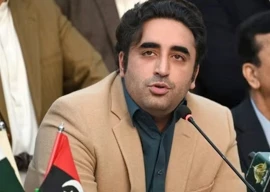
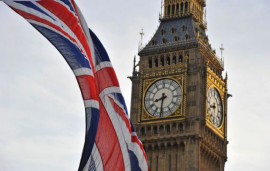

1732011525-0/Express-Tribune-(8)1732011525-0-270x192.webp)

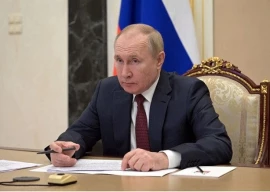
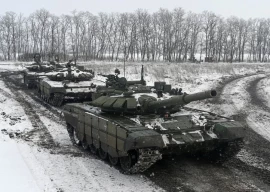

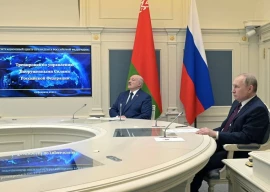






COMMENTS
Comments are moderated and generally will be posted if they are on-topic and not abusive.
For more information, please see our Comments FAQ